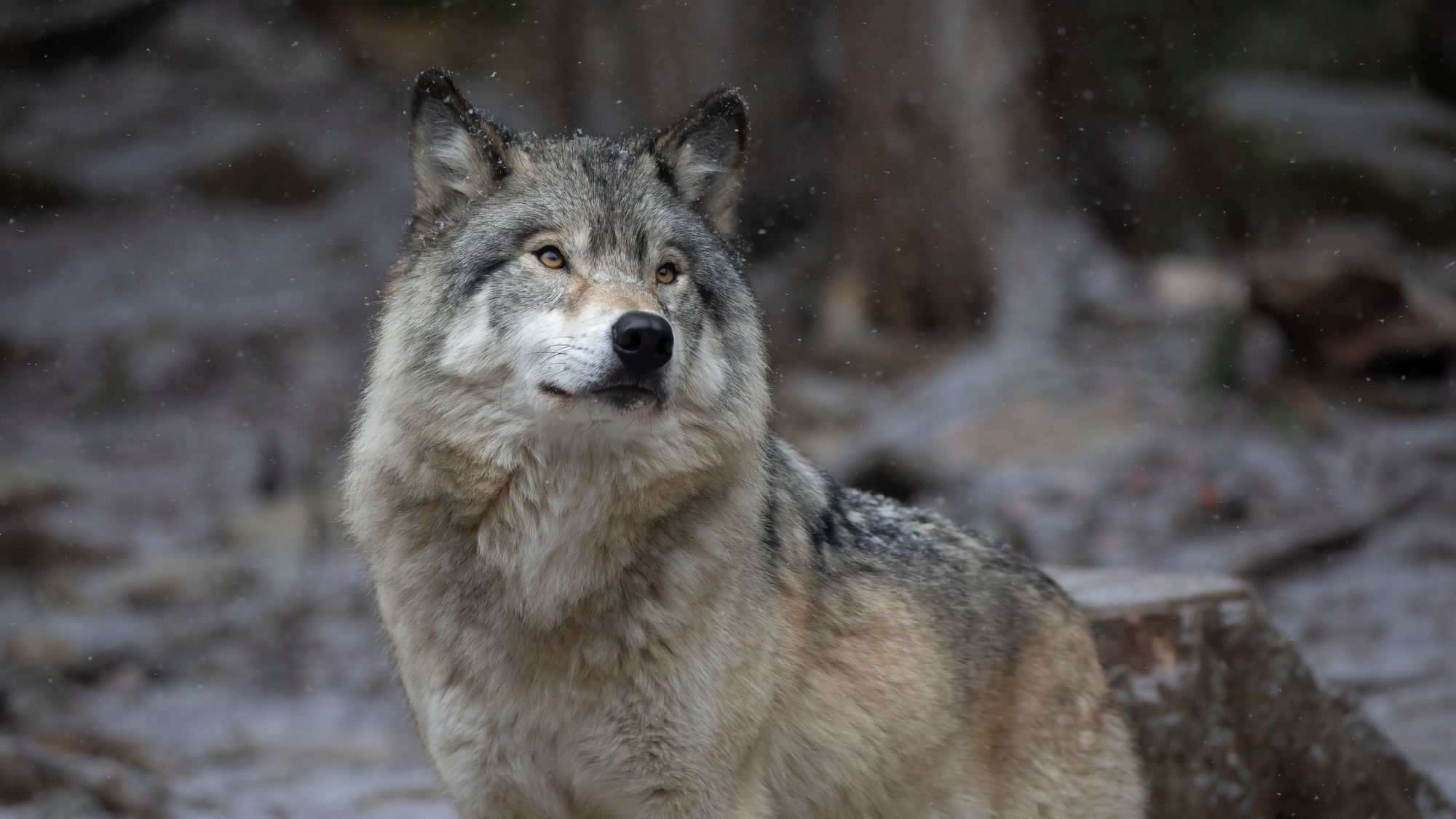

Dogs and wolves are well known for their incredible sense of smell, but some new research suggests that they do not solely rely on their olfactory gifts to find food. In a study of multiple wolves and dogs published September 13 in the open-access journal PLoS ONE, a team of researchers found that both animals performed better at finding hidden food if they visually observed it being hidden by a human. This suggests that they could be remembering where the food was, and not just following their noses alone.
[Related from PopSci+: Why your dog needs to smell the world.]
Social learning is an important way for many species—such as chimpanzees, octopuses, and rats—to transmit information. In social learning, one individual learns by observing or interacting with another. Some earlier research has suggested that both wolves and dogs are capable of a form of social learning called observational spatial memory. This is where an individual animal can remember where another individual has hidden food and then snatch it. However, there are still several knowledge gaps to fill in about these abilities and how they may differ between wolves and domesticated dogs.
In the study, a team from the University of Veterinary Medicine in Vienna, Austria used nine timber wolves and eight mongrel or mutt dogs living at the Wolf Science Center in Ernstbrunn, Austria. They tested the ability of each animal to find four, six, or eight caches of food, after either seeing a human hiding them or without seeing the food be hidden.
They found that both dogs and wolves found more of the first five food caches more quickly and with less distance traveled if they had seen the food compared to scenarios where they didn’t observe a human hiding the cache. The authors believe that this suggests that the wolves and dogs didn’t just use their noses to find the treats and provides more support to the theory that wolves and dogs are capable of observational spatial memory.
[Related: Old dogs need to learn new tricks. Here’s why.]
Additionally, wolves outperformed dogs at finding the cache, whether or not they saw the food being hidden. The team believes that this difference in performance may not be due to differing observational spatial memory abilities between wolves and dogs, but from differences in other traits like persistence and food-related motivation.
“While domestication probably affected dogs’ willingness to adjust to humans, the results of the current study collaborate previous findings suggesting that cognitive abilities do not differ very much between dogs and wolves,” the authors wrote.
